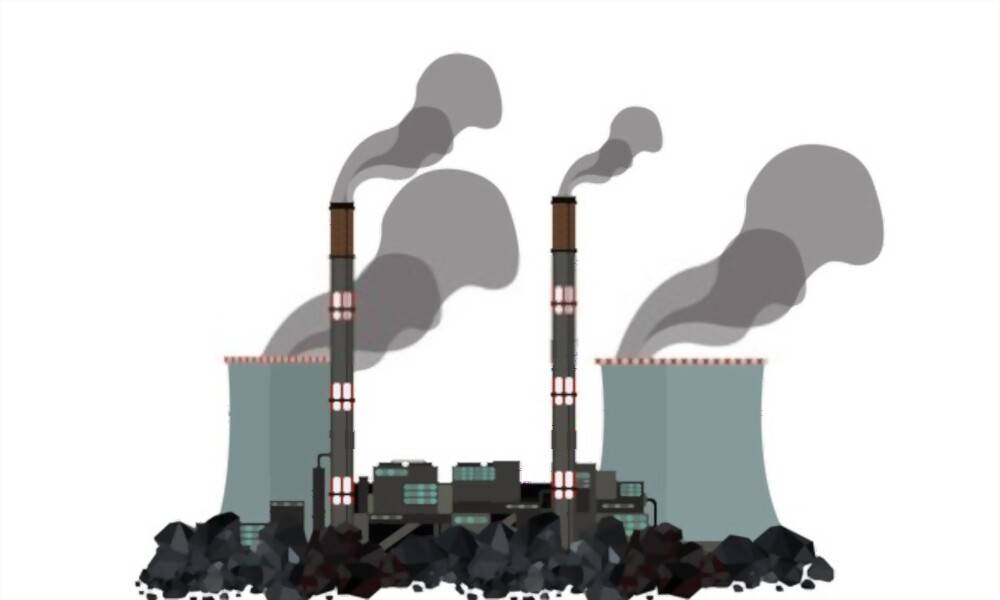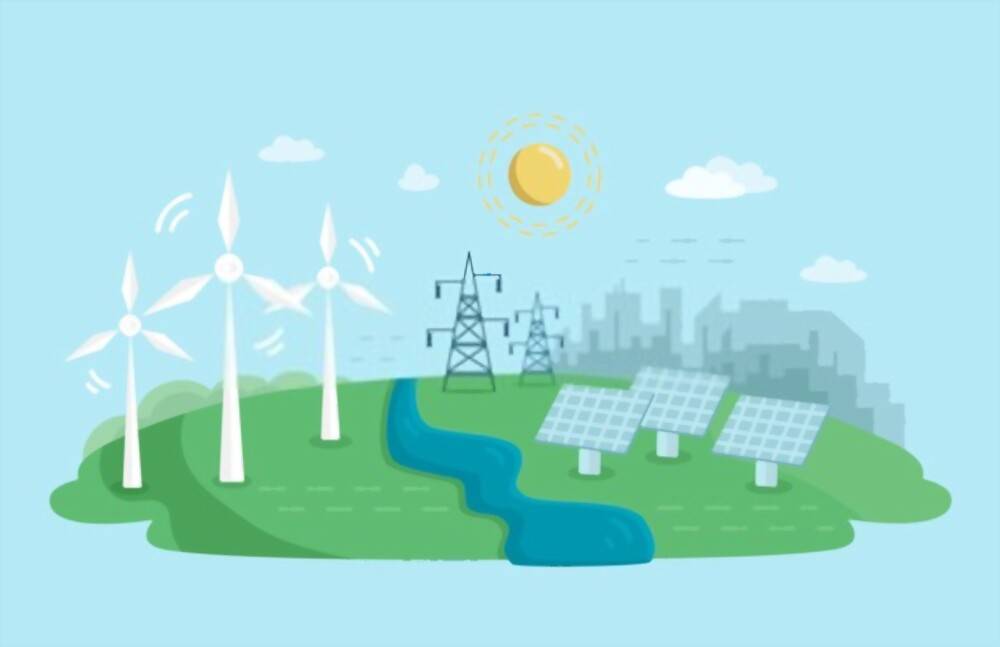Essay on Fossil Fuels and Renewable Energy – Fossil fuels are a complex and globalized industry that affects the economy, environment, and social well-being of many people. Let’s dive deeper to understand further about that-
Long Essay on Fossil Fuels and Renewable Energy 1000 Words

It’s no secret that our world is reliant on fossil fuels. For years, we’ve relied on these non-renewable resources to power our homes, our businesses, and our vehicles. But as we become more aware of the environmental impact of fossil fuels, we’re turning to renewable energy sources to provide the power we need. Let’s dive deeper to understand the impacts and future fossil Fuel-
In this essay, we’ll explore the pros and cons of both fossil fuels and renewable energy. We’ll take a look at the history of each, their current use, and the potential for each in the future. By the end, you should have a better understanding of where our energy comes from and where it might be headed.
What are Fossil Fuels?
Fossil fuels are natural resources that have been formed over millions of years from the remains of dead plants and animals. Fossil fuels are non-renewable source of energy that are used to generate electricity and power our homes, businesses, and transportation.
There are three main types of fossil fuels: coal, oil, and natural gas.
1. Coal is the most abundant and least expensive fossil fuel, but it is also the dirtiest.
2. Oil is a liquid fossil fuel that is used to power our vehicles and create many of the products we use every day.
3. Natural gas is a clean-burning fossil fuel that is used to heat our homes and generate electricity.
Fossil fuels are a vital part of our economy and our way of life, but they come with some serious environmental concerns. Burning fossil fuels releases harmful emissions into the atmosphere, contributing to climate change and air pollution. Mining and drilling for fossil fuels can also have negative impacts on the environment.
Despite these concerns, fossil fuels remain an important part of our world. For now, they are the best option we have for powering our homes, businesses, and transportation.
What are Renewable Energy Sources?

Renewable energy sources are sources of energy that can be replenished or replaced naturally. Means they are renewable and can be reused in one or the other ways. This includes solar, wind, water, biomass, and geothermal energies.
Renewables make up a large portion of the world’s energy supply and are crucial to meeting our future energy needs in a sustainable way. Solar energy is by far the most abundant renewable resource on Earth. Every day, the sun emits more energy than we could ever hope to use.
Solar Panels convert sunlight into electricity, which can then be used to power our homes and businesses. Solar energy is also used to heat water and create space heating and cooling systems.
Wind Energy is another renewable resource that has seen tremendous growth in recent years. Wind turbines convert the kinetic energy of moving air into electricity. Wind power is one of the fastest-growing sources of renewable electricity in the world.
Waterpower is another form of renewable energy that has been used for centuries. Water wheels were once used to grind grain and provide other forms of mechanical power.
Biomass is any organic matter that can be used as a fuel source. This includes wood, crops, and even waste products like manure and sewage sludge. Biomass can be burned to produce heat or converted into biofuels like ethanol and biodiesel.
Today, hydroelectric dams generate electricity by harnessing the power of moving water. Small-scale hydropower systems can also be used to generate electricity for homes and businesses.
The Pros and Cons of Fossil Fuels
Fossil fuels such as coal and oil have been used to generate electricity for over a century. They are reliable, affordable, and abundant.
Here are some of the key advantages of fossil fuels: –
1.Fossil fuels are a very reliable source of energy.
2.They are much cheaper.
3.They are a very abundant resource.
4.There are huge reserves of coal and oil all over the world.
5. Fossil fuels produce large amounts of energy. Therefore they are used to generate electricity.
6.They can be easily transported and stored.
Fossil fuels have several disadvantages-
1.They are a finite resource, which means that they will eventually run out.
2.They are also non-renewable, meaning that they cannot be replaced once they are used up.
3.Fossil fuels are also responsible for a large percentage of greenhouse gas emissions, which contribute to climate change.
4. Burning fossil fuels releases carbon dioxide and other greenhouse gases into the atmosphere, where they trap heat and cause the Earth to warm.
5.Fossil fuels are also dirty and polluting. Burning them releases harmful chemicals into the air, water, and soil. These pollutants can cause health problems in people and animals and damage the environment.
The Pros and Cons of Renewable Energy Sources
Here, we’ll take a look at the pros and cons of renewable energy sources so you can make an informed decision about which type of energy is right for you.
PROS:
There are many advantages of renewable energy.
1. First, renewable energy is a clean source of energy. It does not produce emissions that pollute the air or water.
2.Second, renewable energy is a renewable resource. It can be replenished naturally, unlike fossil fuels which are finite resources that will eventually run out.
3.Third, renewable energy is often cheaper than traditional sources of energy. Once the initial investment has been made, the costs of operating a renewable energy system are often lower than the cost of running a fossil fuel-based system.
4.Fourth, renewable energy can help reduce our dependence on foreign oil. By using more domestic sources of energy, we can reduce our reliance on imported oil and gas.
5. Finally, renewable energy is a growing industry with good job prospects. Jobs in the renewable energy sector are often high-paying and stable, making it a good career choice for many people.
CONS:
There are a few disadvantages of renewable energy to consider as well.
1. First, initial investment costs can be high.
2. Second, renewable energy sources are intermittent, meaning they can’t provide a consistent, 24/7 supply of power. This means that traditional backup power sources, like natural gas or diesel generators, are still needed.
3. Third, the technologies used to generate renewable energy can have negative environmental impacts. For example, large-scale solar farms can take up a lot of land, and wind turbines can kill birds and bats.
Which is Better for the Environment?
There are a lot of factors to consider when trying to determine which is better for the environment. cost, production, and disposal. Here are a few examples:
1. Recycling costs more money and energy than making new products from scratch.
2. Manufacturing products from recycled materials often requires more energy and produces more pollution than making products from virgin materials.
3. Disposing of recycling properly can be difficult and expensive.
4. Some products, like electronics, cannot be recycled at all and must be disposed of in special ways. In general, it is best to avoid disposing of anything in landfills if possible. Recycling should be seen as a last resort when it comes to the environment.
Which is Better for the Economy?
In the context of climate change, the question of which energy source is better for the economy is an important one. On the one hand, fossil fuels are the traditional energy sources and have been used for centuries. They are also relatively cheap and easy to extract. On the other hand, renewable energy sources such as solar and wind power are becoming increasingly popular as they offer a cleaner and more sustainable option.
So, which is better for the economy? In general, renewable energy is thought to be better for the economy in the long run. This is because it can help to reduce greenhouse gas emissions, which contribute to climate change. Additionally, renewable energy sources tend to create more jobs than fossil fuel extraction does. This is because renewable energy often relies on technologies that require more manpower to install and maintain.
Conclusion
The world is clearly at a crossroads when it comes to energy. On the one hand, we have traditional fossil fuels like coal and oil, which are dirty, polluting, and slowly running out.
On the other hand, we have renewable energy sources like solar and wind power, which are clean, sustainable, and endlessly renewable. The future of energy is clearly moving towards renewables, but the transition will not be easy. We need to invest in renewable energy now if we want to secure a clean and prosperous future for ourselves and our planet.